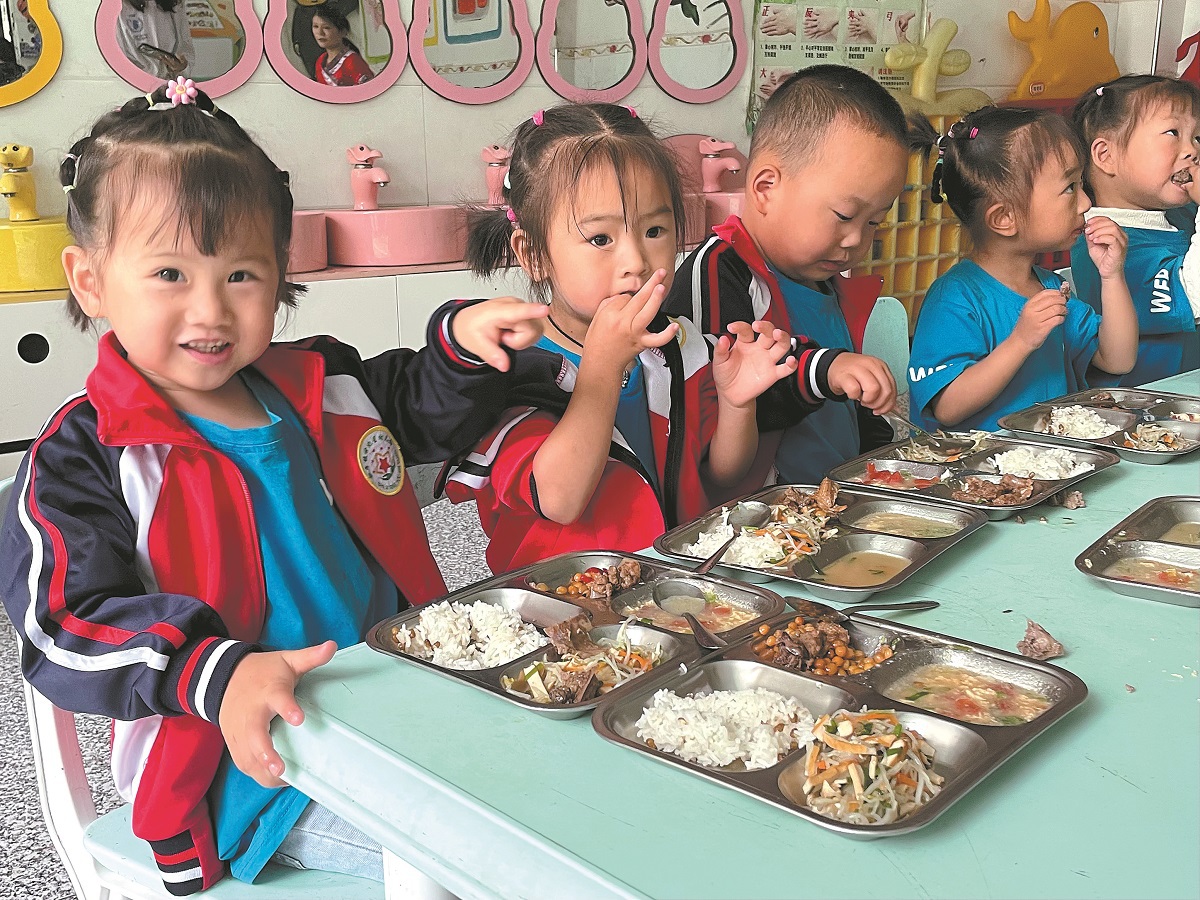湖南省政府門戶網(wǎng) 2024-09-26 17:56:11

At Shaping village kindergarten in a remote area of Central China's Hunan province, a simple meal of pickles and rice was often the only food children received at school. In the past, such a meager children's lunch was not unusual in underdeveloped Yongshun county, nestled in the Xiangxi Tujia and Miao autonomous prefecture.
A two-hour drive along winding mountain roads separates this rural kindergarten from the nearest county hub. Most of its pupils are "left-behind" children, raised by grandparents who often sent them to school on empty stomachs.
Headmaster Peng Nangui recalled the children were often sickly and shorter than the standard height for their age. In flu season, many missed school due to colds and fever.
"Poverty and malnutrition combined cast long shadows over these preschool kids from isolated mountainous regions, severely stunting their growth," said Yi Zungang, director of the prefecture's foreign investment and aid project affairs center.
In recent years, the Chinese government has prioritized nutrition for children, launching policies like the "nutrition package" for infants aged 6 to 24 months and the National Nutrition Improvement Program for rural students aged 6 to 15.
However, children aged 3 to 5 have fallen through the gaps.
About 4.8 million Chinese children under 5 still suffer from stunting and wasting, the "State of Food Security and Nutrition in the World 2024" report revealed.
Children in rural and remote areas are especially vulnerable due to food insecurity, inadequate care, poor living conditions, and the urban-rural divide.
A pilot project for nutritious school meals, jointly run by the World Food Programme and Hunan province, is working to bridge the gap in Xiangxi. Since 2018, a daily subsidy of 4 yuan ($0.57) per child has provided rural preschoolers aged 3 to 5, with a more varied lunch, along with breakfast and afternoon snacks. The initiative has dramatically improved the children's nutrition.
Around 7,348 preschool children from Yongshun and Longshan counties in the ethnic minority autonomous region have benefited from the program. Over 80 percent are left-behind children, and more than a half of them come from low-income families.
"We believe that early intervention in the development of rural children is a crucial investment in human capital," said Zhao Bing, representative of the WFP China Office. "It's a key strategy to break the cycle of intergenerational poverty and achieve social equity," he said.
責(zé)編:田夢瑤
一審:田夢瑤
二審:唐煜斯
三審:秦慧英
來源:湖南省政府門戶網(wǎng)
我要問



 下載APP
下載APP 報料
報料 關(guān)于
關(guān)于
 湘公網(wǎng)安備 43010502000374號
湘公網(wǎng)安備 43010502000374號